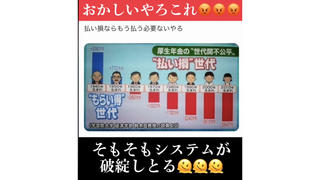
Is Pfizer selling medicine that cannot be sold in the United States to Japan, such as Lyrica (pregabalin)? No, that's not true: Lyrica has been FDA-approved since 2004 to treat neuropathic pain, and the prescription use for pregabalin by Pfizer was conducted in Japan in collaboration with renowned Japanese pharmaceutical company Eisai in June 2010 to treat postherpetic neuralgia, meaning the drug was specifically researched, tested, and administered under Japanese law and with a Japanese audience in mind.
The claim appeared on TikTok (archived here) and was published on May 2, 2024. In comments translated from Japanese to English by Lead Stories staff, the narrators on the video discuss the prospect of Pfizer taking advantage of supposed lax Japanese drug laws to sell and make a profit from drugs that are banned from the United States:
The company called "Pfizer" is doing pretty suspicious things. They sell drugs in Japan like clockwork. What's terrible about this is that they bring the drugs they can't sell in America into Japan very easily. This is the current situation, and for example, drugs such as Lyrica [...] You can quickly get this drug if you go to your doctor and tell them your body is shaking, and this drug is pretty dangerous. This is known as an addictive, strong, and dangerous drug in America, but why is a drug like this being sold in Japan so easily?
This is what the post looked like on TikTok at the time of writing:

(Source: TikTok screenshot taken on Wed May 29 23:00:19 2024 UTC)
It is not true that Pfizer is deliberately selling drugs that are not FDA-approved or illegal in the United States to Japan. Eisai, one of the biggest Japanese pharmaceutical companies, announced the approval of Lyrica in a 2013 press release (archived here), that Lyrica, and Lyrica's external oral tablets officially launched in 2017 as a joint product between Pfizer and Eisai (archived here). Initially, the drug was meant to treat postherpetic neuralgia (archived here), a common long-term complication of shingles easily identified by a sharp, burning nerve pain around the skin's surface. Before the creation and administration of Lyrica in Japan, its chemical name, pregabalin, was approved by the FDA in 2004 (archived here) to medicate neuropathic pain and seizures. Then, in 2017, the FDA approved the administration of Lyrica extended-release tablets for neuropathic pain conditions and epilepsy (archived here).
Lyrica/pregabalin is classified under the anticonvulsant class (archived here), which is meant to reduce the severity of neuropathic pain, convulsions, and epileptic fits (archived here). Due to this, pregabalin is a prescription drug that can only be administered to patients who are either diagnosed with epilepsy (archived here) or neuropathic pain (archived here). When taken with opioids, pregabalin can increase the potency for addiction and increase risks of overdose and death as it lowers opioid tolerance (archived here). However, in the absence of opioids, pregabalin is generally safe and has a low potential for addiction and abuse, which is why it has been classed as a Class V drug in the Federal Register (archived here).
Pregabalin's side effects are relatively mild, ranging from common anticonvulsant side effects such as dizziness, weight gain, and mild anxiety, with very few people having severe issues when taking pregabalin (archived here). As such, pregabalin/Lyrica is generally a safe, FDA-approved drug that can be taken when prescribed by doctors for epilepsy and neuropathic pain.












